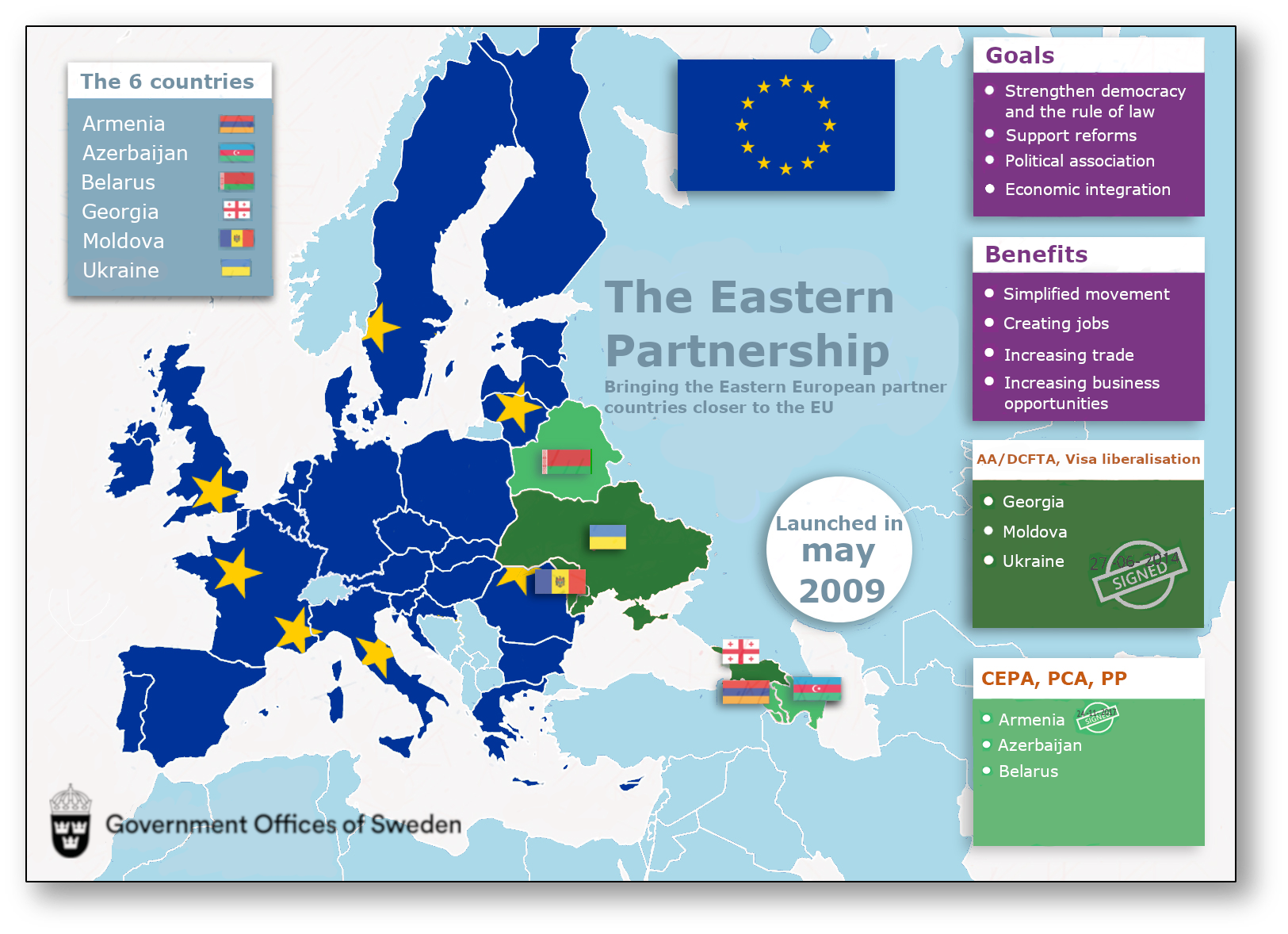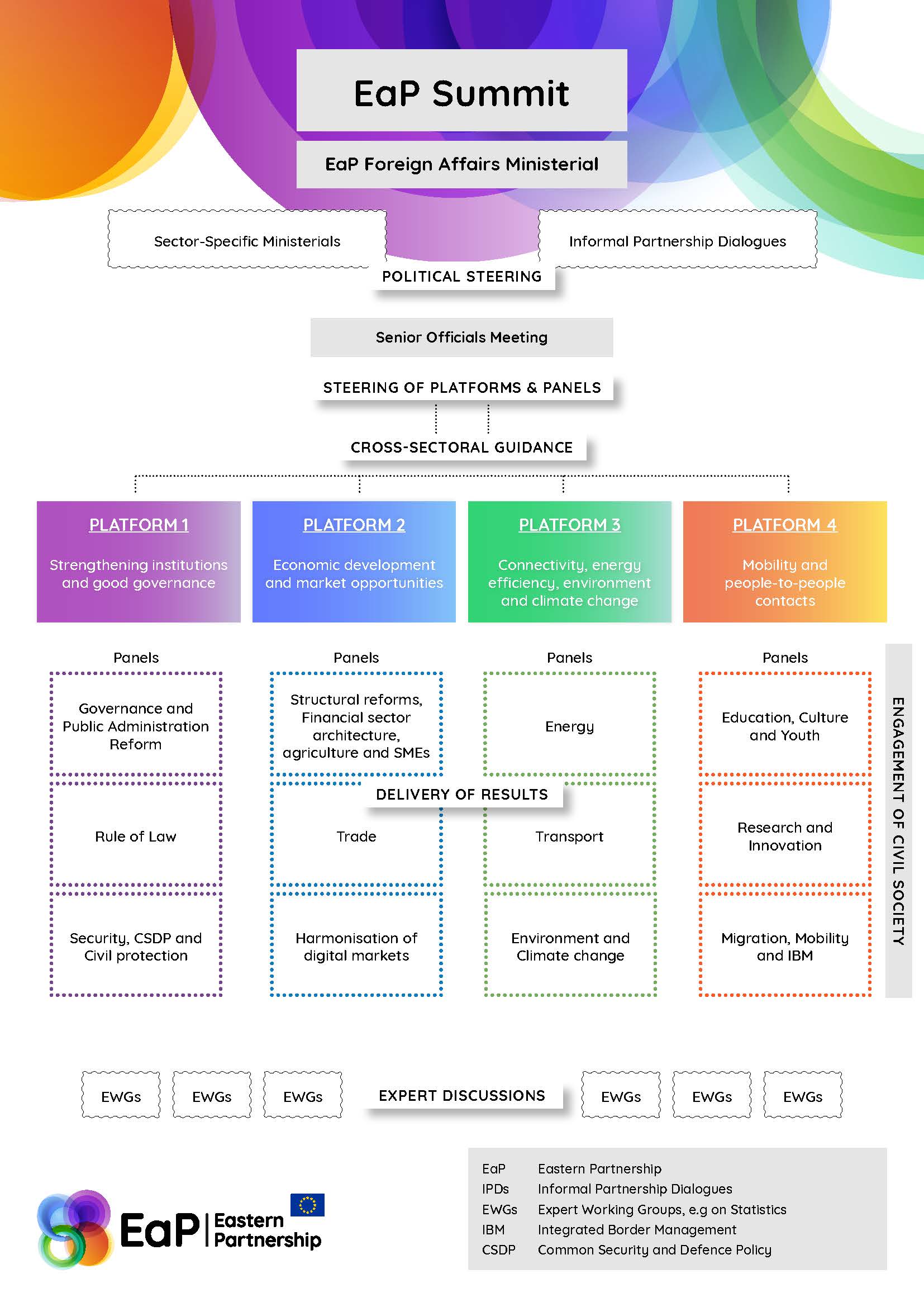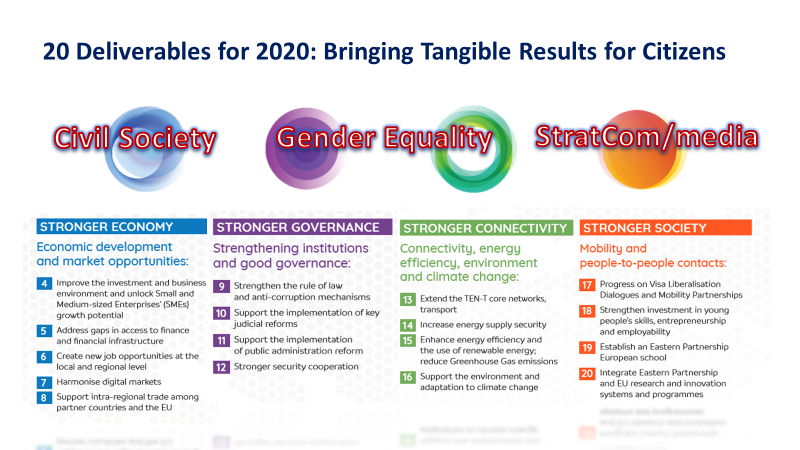Eastern Partnership
Published
The Eastern Partnership (EaP) is a part of the EU European Neighbourhood Policy (ENP) and plays an important role in strengthening the EU’s relations with six partner countries in Eastern Europe and South Caucasus. The aims and principles of the EaP have been established at five summits, most recently in Brussels in 2017.

Initiated by Sweden and Poland, the EaP was established at the first Eastern Partnership summit in Prague, 2009. Its main purpose was initially to enhance the political association and economic integration of the six partner countries with the EU. This was to be done by: drafting extensive association agreements, including deep and comprehensive free trade areas; intensifying collaboration within certain areas; and setting up goals for visa liberalisation. Collaboration was gradually extended at the four subsequent summits.
Collaboration with six countries
The six EaP partner countries are:
- Armenia
- Azerbaijan
- Belarus
- Georgia
- Moldova
- Ukraine
The EaP has contributed to raising the level of ambition of EU relations with these countries. Progress has been most evident in Georgia, Moldova and Ukraine, which have all signed association agreements with the EU. These three countries have also met the requirements for visa liberalisation, which is now valid for their citizens travelling to the Schengen area. Collaboration with Armenia, Azerbaijan and Belarus has also advanced. A comprehensive and enhanced partnership agreement (CEPA) was signed between Armenia and the EU in 2017. The EU started negotiations with Azerbaijan for a new partnership and cooperation agreement in 2017, and policy priorities are currently being discussed with Belarus.

Collaboration at two levels
The partnership’s main focus lies on each partner country’s bilateral relation with the EU. With the aim of supporting these relations and creating foundations for collaboration between the partner countries, a multilateral dimension has also been established. The multilateral work consists of the Eastern Partnership summits taking place every second year, yearly foreign ministers meetings as well as meetings, seminars and workshops on expert level. Collaboration between the European parliament and parliaments in five of the partner countries has been established through EURONEST. There are also connections between regional and local authorities as well as civil society organisations.
Multilateral collaboration has four thematic platforms, with each platform representing a prioritised political area of the EaP. Each platform consists of three panels, focusing on more specific areas.

Goals
At the EaP summit in Brussels in 2017, the EU Member States and the six partner countries drafted ‘20 deliverables for 2020’. Just like the multilateral platforms, the 20 deliverables have been divided into four key areas (stronger economy, stronger governance, stronger connectivity and stronger society), supported by three cross-cutting deliverables: engagement with civil society; gender equality and non-discrimination; and strategic communication and independent media. These deliverables embrace the entire political agenda of the EaP. The ‘20 deliverables for 2020’ have been linked to the UN’s Sustainable Development Goals.

European Neighbourhood Policy
The EaP is part of the EU European Neighbourhood Policy (ENP), and its work is financed by the European Neighbourhood Instrument . The EaP has been granted EUR 15.4 billion for the period of 2014–2020. Some of the partner countries have separately been granted macro-financial assistance and humanitarian aid by the EU .
EaP@10
In 2019, the EaP is celebrating its 10th anniversary, providing an opportunity to reflect on the EaP’s achievements over its ten years of existence. Commemoration events will be hosted in the six partner countries, Brussels and the EU Member States, including Sweden.

 X
X